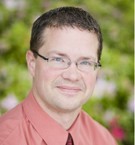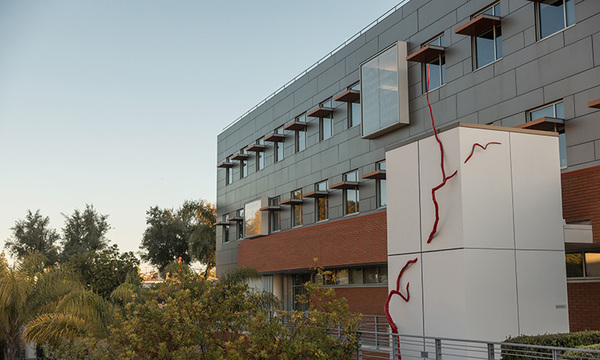Psalm 23 is not exactly about shepherds or sheep. It is a royal psalm about King YHWH and his covenant relationship with the Davidic king, and it speaks powerfully to me as I journey through cancer treatment.
The Lord has brought Psalm 23 to my attention repeatedly over the course of the summer, as I have been in chemo treatments for leukemia. Numerous songs on my playlist quote it or allude to it. Many of my friends have referred to it in their cards of encouragement, and it just seems to pop up “coincidentally” wherever I am looking. One colleague who visited me at the hospital even recited it to me in Hebrew, which incidentally, in- spired me to commit it to memory in Hebrew while I am spending months in the hospital. ...
First, it should not surprise us that the next psalm (24) is all about the Divine King in his high, holy palace: the “King of glory” who returns to his throne room after leading Israel in battle. Psalms 23 and 24 are juxtaposed intentionally because of their shared royal theme. Second, when Jesus identifies as the “good shepherd” (John 10), he identifies as YHWH, the Divine King who is referenced in Psalm 23 and elsewhere. The Jewish audience clearly understood that Jesus was claiming deity, and they considered it blasphemy.
Reflections about God’s Presence
One thing that has always bothered me about Psalm 23 is how it is mostly associated with funerals in contemporary usage. Even I have read this psalm publicly at memorial services in the past! But the phrase “valley of the shadow of death” is not referencing the eventuality of death itself but a position in which one is threatened by the prospect of death. That is quite a big difference. This psalm is for the living, not the dead. The journey following a cancer diagnosis is a very appropriate example of such a dark valley. Indeed this psalm is relevant to anyone who experiences a life-threatening encounter. That person should remember, with the psalmist, that this dangerous pass is a “right path,” one that the Divine King has chosen ahead of time and into which he leads his people. The dark direction is the “right path” because God is at the front. He “leads” us through it, and this is why we can “fear no harm.” We can experience “comfort” when we remember that God is the one holding the “rod” and the “staff” at the helm. God’s sovereign leadership is one of the ways this psalm shows God’s presence in our lives.
The second point that strikes me about God’s presence in this psalm is how it emphasizes God’s role as the Provider for his people. For a long time before the cancer diagnosis, my wife and I were anxious about finances and asked God frequently to help us pay the bills and pay down debts. We worked hard at our jobs and sought opportunities for additional income whenever possible. But the cancer diagnosis brought our striving to a halt. We were unable to work and even went on disability for a time. Yet it is clear that the Royal Shepherd wanted to demonstrate his provision in our lives! We have been overtaken by his “order” and “loyalty” as he moves his army of people to give generously and thoughtfully to ensure that we “not lack” anything. God literally made us “lie down” and “be still” (cf. Ps. 46:10) so that we could experience his “green pastures.” The “restful waters” of meal trains, gift cards, acts of service, prayer support, visitation and financial gifts, washed our financial anxieties away while we idly received and said “thank you,” repeatedly. Therefore, it was during the face-off with our enemies, the “Leukemites,” that the Divine King prepared his “table” for us and hosted an elaborate feast with overflowing resources that actually restored our souls.
Halleluyah! God is a loving, good Shepherd who leads us and provides for us as only a great King could do! His presence with us in this mortal life is something we can experience tangibly through trust in his wise order and through receiving his lavish gifts, which often come from his covenant-people.
This adapted article was originally posted on Aug. 26, 2019, on The Good Book Blog.
Ken Way, an associate professor and chair of Old Testament and Semitics at Talbot School of Theology, praises the Lord for his remission from acute myeloid leukemia. After his diagnosis in May 2019, Way underwent chemotherapy, radiation and a stem-cell transplant but is now regaining his strength and returning to full-time teaching.
 Biola University
Biola University
